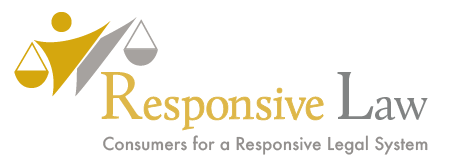U.S. Continues to Lag in Rule of Law Index
6/2/2015
Written by Tom Gordon
The World Justice Project has released its 2015 Rule of Law Index, a comprehensive ranking of countries based on how their public experiences the rule of law. We've reported on the Rule of Law Index before, and sadly the story remains the same for the United States. While we rank among the world's leaders in most areas, we continue to bring up the rear among our peers in accessibility and affordability of civil justice.
The WJP rated countries on 44 factors across eight categories, including open government, absence of corruption, civil justice, and criminal justice. The U.S. was ranked 19th of 102 countries overall, and was in the middle of the pack overall among its geographic and income-level peers. However, the story is very different when it comes to the Civil Justice category of "Accessibility and affordability." Here, the U.S. was in a tie for 65th with countries including Pakistan, Tanzania, and Uzbekistan.
When compared to its peer countries for accessibility an affordability, the U.S. is even more dismal. We were next to last among 31 high income countries, narrowly edging out the United Arab Emirates to avoid a dead-last ranking. Even among upper-middle income countries, only four of 31 scored lower than the U.S. in this category. And our score in this category was far below any other country in North America and Western Europe.
What's most disappointing about the U.S.'s low ranking is that it comes despite our relative prosperity. For Americans of average means, legal help is less available than it is for those of average means in far poorer countries. This isn't due to a shortage of lawyers, but due to the inability of the American system to match people who need help with those who can provide it, brought on by the economic protectionism of bar associations. Eliminating antiquated rules that prevent mass-market consumer legal services—doing for legal help what H&R Block does for taxes—is one way to fix this problem. Rolling back restrictions on the unauthorized practice of law—allowing competent non-lawyers to provide basic legal assistance—is another. Reforming these areas is a must if the U.S. wants a justice system more accessible than that of an impoverished nation.
Tom Gordon is Executive Director of Responsive Law.
